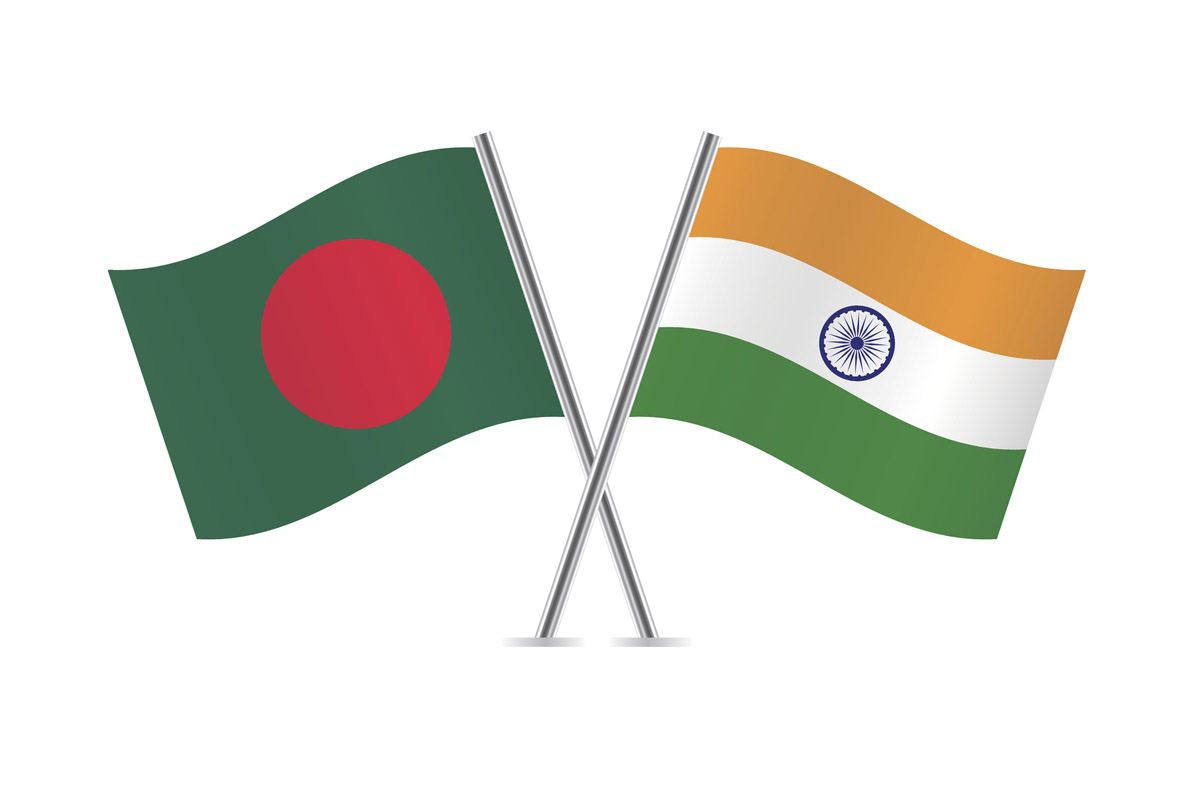Bangladesh suspends visa services in Agartala over security concerns
The Bangladesh Assistant High Commission in Agartala has suspended all visa and consular services indefinitely, citing security concerns.
At the 6th meeting of the India-Bangladesh Joint Consultative Commission (JCC) held in the virtual mode, the two countries agreed that the loss of civilian lives at the border was a matter of concern

Photo: iStock
India and Bangladesh today resolved to effectively implement the Coordinated Border Management Plan (CBMP) by asking their border forces to enhance communication and coordination to bring border incidents down to zero.
At the 6th meeting of the India-Bangladesh Joint Consultative Commission (JCC) held in the virtual mode, the two countries agreed that the loss of civilian lives at the border was a matter of concern. External Affairs Minister S Jaishankar and his Bangladesh counterpart A K Abdul Momen co-chaired the meeting.
Advertisement
“Importance of educating the border population about the sanctity of the international border was stressed upon. The Indian side also requested for an expeditious approval to erecting the single row fencing in vulnerable patches along the border, within 150 yards, that will help contain border crimes,” a joint statement issued at the end of the meeting said.
Advertisement
Reiterating the commitment of India to priorities the supply of Covid-19 vaccines, Jaishankar emphasised the importance of Bangladesh in India’s ‘Neighbourhood First’ policy. In this context, the two ministers directed their officials to expedite exchange of required information regarding Phase-III testing, vaccine distribution, co-production and delivery in Bangladesh.
The two sides noted that India and Bangladesh were currently the top two economies in South Asia and greater measures could be taken for mutually beneficial enhancement of trade and investment between the two countries, including removal of all forms of barriers to trade.
Both ministers tasked their officials to work closely to avoid disruption of supply chains, particularly in the post-Covid period. They emphasised the need to resume unhindered two-way trade through the land ports, while optimising use of the four trans-border railway connections as well as inland and coastal waterways.
They expressed satisfaction at the increasing pace of defence cooperation, including in training, exchanges and capacity building. They welcomed the proposal to hold the next meeting of the annual defence dialogue in November. They urged an early implementation of the defence Line of Credit.
The two ministers reiterated their commitment to finalisation of an interim agreement for sharing of the waters of the Teesta.
Recognising that terrorism remained a significant threat to global peace and security, both sides reiterated their strong commitment to eliminate the menace in all its forms and manifestations.
It was decided that the PMs of the two countries would hold a virtual summit in December.
Advertisement